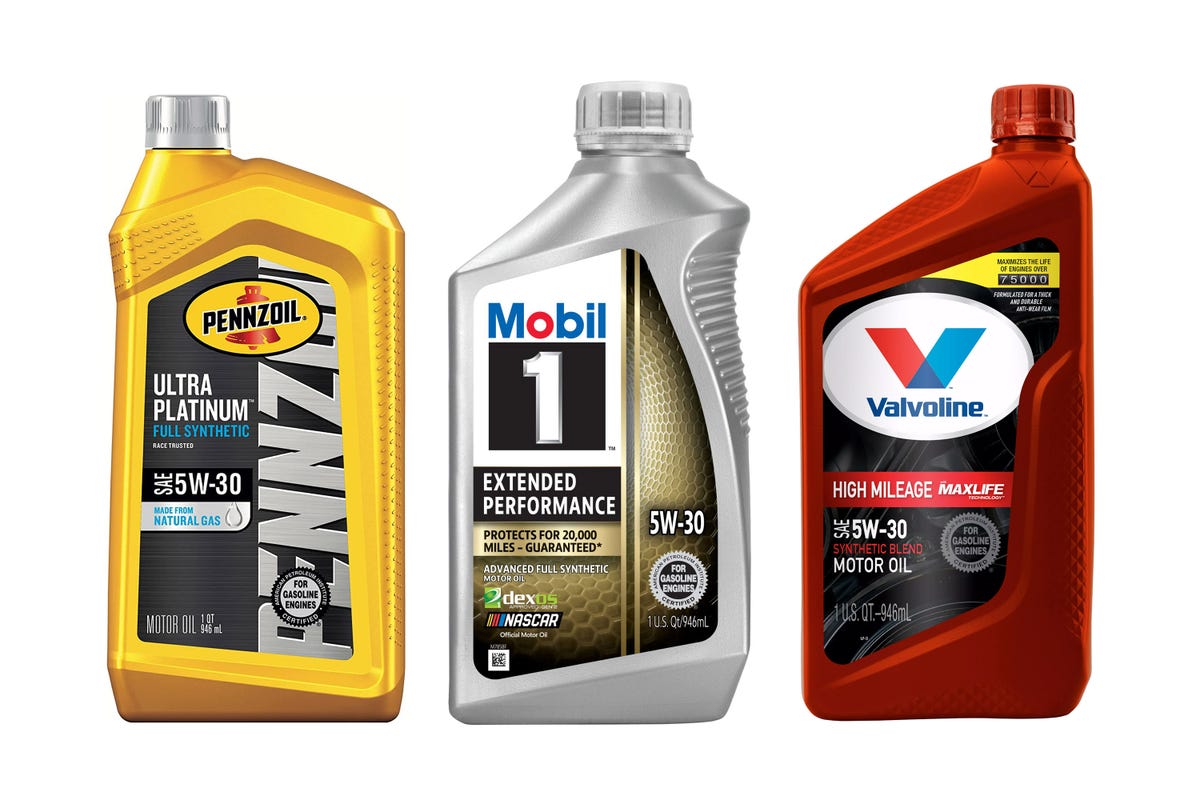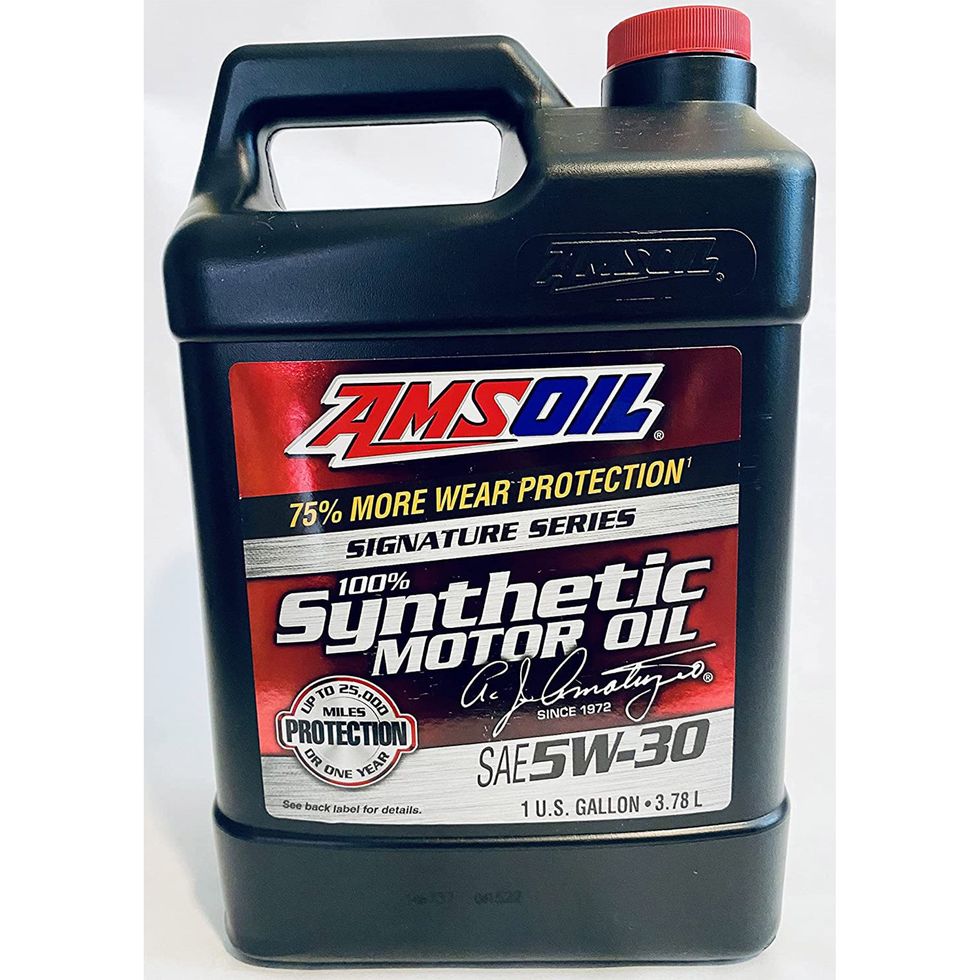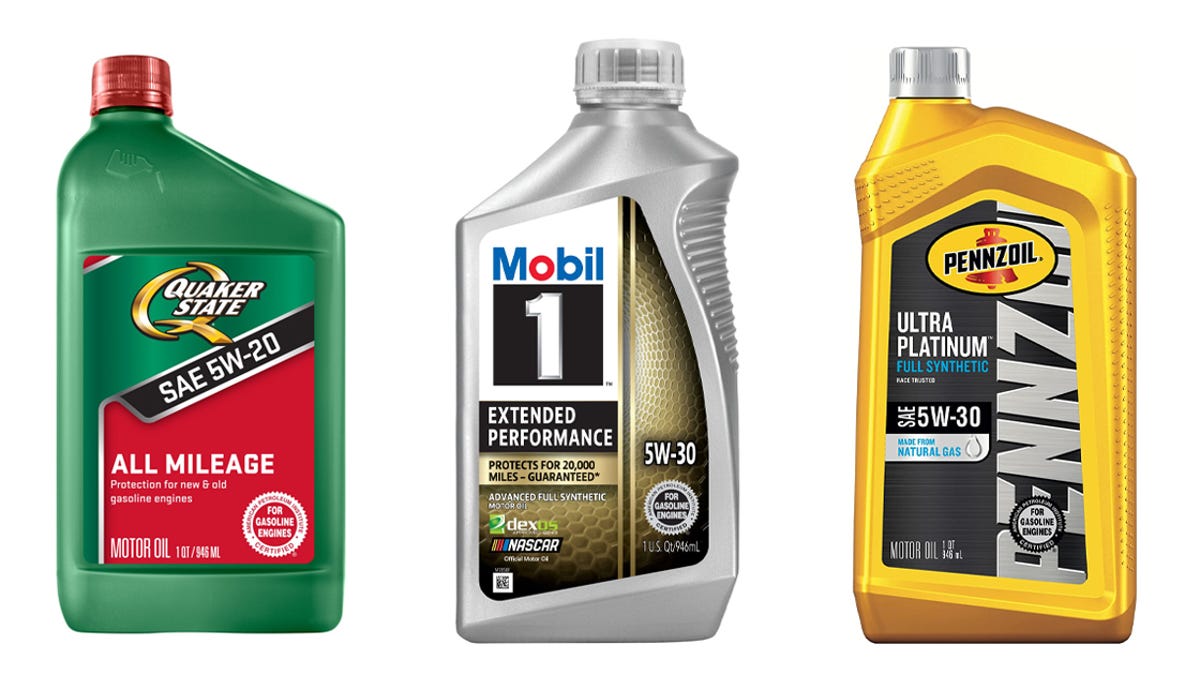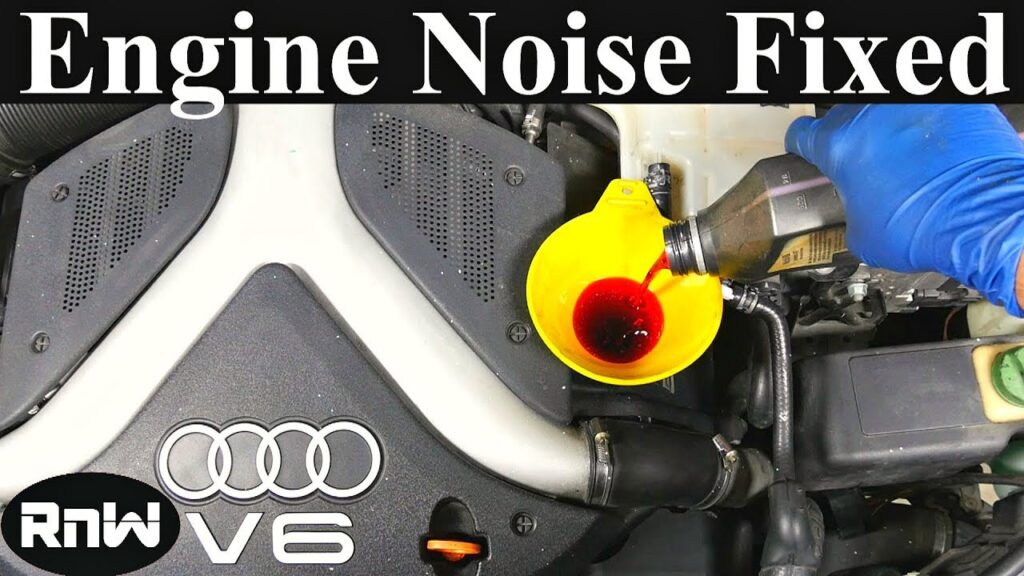The best engine oil for American cars typically depends on the vehicle manufacturer’s specifications. Mobil 1 Synthetic Motor Oil is widely recommended for its high performance in American-made engines.
Choosing the best engine oil for your American car is crucial for maintaining its performance, longevity, and fuel efficiency. The right oil safeguards your engine against wear and ensures smooth operation under varying driving conditions. Car owners should consult their vehicle’s owner’s manual to identify the ideal viscosity and oil type prescribed by the manufacturer.
With advancements in automotive technology, synthetic oils like Mobil 1 have become the favored choice for many American vehicles, offering superior engine protection and extended oil change intervals. Remember to regularly check your oil level and follow the recommended oil change schedule to keep your engine in top condition.

Credit: www.cnet.com
Introduction To Engine Oil
Your car’s engine is a powerhouse of complexity. Engine oil is the lifeblood that keeps it running smoothly. It lubricates, cleans, cools, and protects the engine’s moving parts. Without it, your car’s performance drops, and its engine wears down faster.
Significance Of Quality Engine Oil
- Reduces friction: Top-notch oil minimizes wear.
- Extends engine life: It shields against damage.
- Improves performance: Quality oil ensures peak operation.
- Enhances fuel economy: Efficient lubrication equals better mileage.
Understanding Vehicle Specific Needs
Cars from the USA may need unique oil blends. American car engines have specifications. Aligning the oil type with these specs is crucial.
| Car Type | Oil Requirement |
|---|---|
| High-Performance | Full Synthetic |
| Muscle Cars | Higher Viscosity |
| Older Models | High Mileage Oil |
Select the right oil for your engine’s happiness. Look to the owner’s manual. Confirm with a trusted mechanic if unsure.
Basics Of Engine Oil Viscosity
Basics of Engine Oil Viscosity:
Understanding engine oil viscosity is key to your car’s health. Think of viscosity as the oil’s thickness. It affects how easily it flows in the engine. Oil needs to be thick enough to lubricate but thin enough to move freely.
Viscosity Ratings Explained
Viscosity ratings tell you how oil behaves at certain temperatures. This rating includes two numbers. The first, with a “W”, stands for winter. It shows the oil’s flow at cold temperatures. The second number shows viscosity at engine operating temperatures.
| Rating | Cold-Weather Performance | High-Temperature Performance |
|---|---|---|
| 5W-30 | Good for cold climates | Works well at moderate temperatures |
| 10W-40 | Okay in mild cold | Ideal for hotter climates |
Choosing The Right Viscosity for Your Climate
Selecting oil for your climate is essential. Use a low ‘W’ oil in cold weather for better protection. A higher second number is better for hot weather.
Remember these points:
- Check your manual – It has the manufacturer’s recommendation.
- Consider seasons – Switch oils if you have extreme winters or summers.
- Observe performance – Change viscosity if your car struggles on startup.
Synthetic Vs Conventional Oils
Choosing the right engine oil is key for the health of your car. American cars need quality lubrication to last long and run smoothly. When picking an oil, you face two main types: synthetic and conventional. It’s crucial to understand their differences to make the best choice for your vehicle.
Benefits Of Synthetic Oils
Synthetic oils are engineered to perform at the highest level. They offer several advantages over conventional oils:
- Better at extreme temperatures: Handles hot and cold weather well.
- Longer lasting: Oil changes are less frequent.
- Engine protection: Keep your engine clean and deposit-free.
- Fuel efficiency: Helps improve your car’s gas mileage.
When To Use Conventional Oils
While synthetic oils shine, conventional oils have their place. Use these oils when:
| Condition | Reason to Use Conventional Oil |
|---|---|
| Lower Mileage Cars | No need for high performance lubrication. |
| Older Engines | Designed for traditional oils. |
| Tight Budgets | More affordable than synthetic oils. |
| Lighter Usage | Infrequent driving needs less protection. |

Credit: www.caranddriver.com
Top Picks for American-made Vehicles
Finding the perfect engine oil is crucial for your American car’s performance. American vehicles demand high-quality lubrication to run smoothly. Let’s explore the best oils for these rides.
Leading Brands and Models
- Valvoline Daily Protection: An ideal choice for long-lasting engine health.
- Mobil 1 Advanced Full Synthetic: Offers superb engine protection.
- Castrol EDGE: Strengthens against engine pressure.
- AMSOIL Signature Series: Top-tier performance for high-mileage vehicles.
- Pennzoil Ultra Platinum: Delivers pure plus technology for efficiency.
Selecting the right oil matters. Check your car’s manual first. These brands offer various weights and types. Choose according to your engine’s needs.
User Reviews And Ratings
User feedback is a gold mine for decision-making. Look at overall satisfaction levels and proven performance.
| Oil | User Rating | Pros | Cons |
|---|---|---|---|
| Valvoline | 4.8/5 | Engine cleanliness, durability. | May not be fully synthetic. |
| Mobil 1 | 5/5 | Superior wear protection, fuel economy. | Costs more than others. |
| Castrol EDGE | 4.5/5 | Reduces friction, performs under pressure. | Slightly pricier option. |
| AMSOIL | 4.7/5 | Extended drain intervals, engine performance. | Availability might be an issue. |
| Pennzoil | 4.9/5 | Clean engines, better fuel economy. | Premium price tag. |
High ratings often mean top quality. Keep in mind, a personal test proves true worthiness. Tailor your choice to your specific car needs.
Impact Of Oil on Engine Performance
The lifeblood of any American car is the engine oil. It ensures that the engine runs without a hitch. Quality oil can improve how well your car works. It can also make your car last longer.
Enhancing Engine Efficiency
Using the best engine oil makes your car’s engine work better. It cuts down on friction. This means the engine doesn’t have to work as hard. That can save you fuel and money.
- Better lubrication: This leads to a smoother-running engine.
- Less wear and tear: Premium oils protect engines better.
- Optimal performance: The right viscosity helps in extreme temperatures.
A table of oils and their benefits:
| Type of Oil | Main Benefit |
|---|---|
| Full Synthetic | Best performance and protection |
| Synthetic Blend | Good balance for cost and quality |
| Conventional Oil | For older, less-demanding engines |
Proactive Engine Maintenance
Good oil keeps your engine clean. It stops dirt build-up. This means your engine stays strong. Regular oil changes are vital. They keep your car in the best shape.
- Check oil level often.
- Change the oil as your manual says.
- Use the right oil for your car.
Remember: A car with clean, fresh oil is happier. This can help you avoid big repairs.
Changing Engine Oil
Changing engine oil is crucial for the health of American cars. It keeps engines running smoothly. Drivers should understand the importance of timely oil changes.
Ideal Oil Change Intervals
The right time to change engine oil can vary. It depends on the car type and oil quality. Most manuals suggest every 3,000 to 5,000 miles. Yet, modern cars with advanced oils can go up to 7,500 to 10,000 miles. Always check the car’s manual for the best interval. Consider the driving conditions too. Frequent towing or hot weather can shorten this period.
Diy Oil Change Tips
- Gather the right tools: Wrench set, oil filter wrench, funnel, jack, and wheel blocks.
- Choose the correct oil: Consult your car manual for the recommended type.
- Prepare your work area: Find a level surface and lay down newspapers or cardboard to catch drips.
- Drain the old oil: Warm up the car slightly. Turn it off and drain the oil into a pan.
- Replace the oil filter: Use an oil filter wrench to remove the old filter. Lubricate the new one with fresh oil and install it.
- Refill with new oil: Pour new oil into the engine via the funnel. Check the level with the dipstick.
- Dispose of old oil: Recycle it at an auto shop or disposal facility. Never pour it down the drain.
Oil Additives For Extra Protection
Choosing the right engine oil for American cars is crucial. Oil additives enhance this protection. They work with the oil to ensure the engine runs smoothly. Think of them as a vitamin boost for your car’s heart.
Purpose Of Additives
Additives serve many purposes in engine oils. They help in:
- Reducing friction
- Minimizing wear
- Preventing rust
- Cleaning deposits
This keeps your engine running like new.
Respected Additive Brands
Many brands make quality additives. Here are a few respected ones:
| Brand | Product Features |
|---|---|
| Liqui Moly | Improves performance |
| Lucas Oil | Increases life of old engines |
| Sea Foam | Cleans and lubricates |
These brands stand out for their quality and efficacy. Choosing the right additive keeps your car’s engine in peak condition.

Credit: www.cnet.com
Environmental Considerations
When selecting the best engine oil for American cars, it’s not just about performance and protection for your engine. We must also consider the environmental impact. Eco-friendly choices can help reduce the carbon footprint, and proper disposal preserves our ecosystem. Let’s explore how drivers can make greener choices without compromising on their engine’s health.
Eco-friendly Oil Options
Choosing eco-friendly engine oils benefits both your car and the environment. These oils are designed to reduce emissions and improve fuel efficiency.
- Biodegradable Oils: They break down naturally.
- Synthetic Oils: These provide superior performance while being kinder to the environment.
- Re-refined Oils: Made from recycled oil, they are as good as new oil in terms of engine protection.
Proper Disposal Of Old Oil
Proper disposal is critical to environmental safety. Incorrect disposal leads to soil and water contamination.
- Never pour old oil into the ground or drains.
- Store the used oil in a clean, plastic container with a tight lid.
- Take it to a recycling center, auto shop, or hazardous waste facility.
Following these steps ensures that we contribute to a healthier, cleaner environment. Finding and using eco-friendly oil options, coupled with responsible disposal, makes a significant difference.
Cost Vs. Quality In Engine Oils
Finding the right engine oil is crucial for maintaining your American car’s performance. Drivers often face a dilemma when they stand in the oil aisle: should they opt for an affordable option or invest in a pricier, high-quality oil? Understanding cost versus quality in engine oils can lead to smart decisions that benefit your car and wallet over time.
Navigating Price Points
The market offers a wide range of engine oils at diverse price points. Cheaper oils might look appealing, but they do not always represent the best value. High-end oils, priced higher, often provide advanced protection and performance. Selecting the right oil requires balancing price with the benefits offered.
- Synthetic oils: Typically more expensive, designed for high performance.
- Conventional oils: Budget-friendly and suitable for less demanding engines.
- Blends: Offer a middle ground with better protection than conventional oils at a moderate price.
Long-term Savings With Quality Oils
Investing in quality engine oil can save money in the long run. High-quality oils protect engine components and reduce wear. This leads to fewer repairs and a longer lifespan for your vehicle. Don’t overlook the potential savings from increased fuel efficiency and extended oil change intervals provided by premium oils.
| Oil Type | Benefits | Cost Over 5 Years |
|---|---|---|
| Conventional Oil | Basic protection | $ |
| Synthetic Blend | Better protection, moderate price | $$ |
| Full Synthetic | Best protection, fuel economy | $$$ |
Remember: Regular maintenance with the appropriate quality oil ensures your American car runs smoothly and avoids costly breakdowns.
Frequently Asked Questions
Which Brand of Engine Oil Is Best for Cars?
The best engine oil brand for cars widely varies based on vehicle make and model. Popular choices include Mobil 1, Castrol, and Valvoline, known for their quality and performance. Always consult your car’s manual for the manufacturer’s recommendation.
What Is the Highest Quality Motor Oil?
The highest quality motor oil is typically a fully synthetic formula with advanced wear protection designed for modern engines. These oils offer superior performance and longevity under various driving conditions. Brands like Mobil 1, Amsoil, and Castrol produce some of the top-rated synthetic oils.
Is There a Difference Between European Oil and American Oil?
European oil and American oil differ primarily in performance specifications and quality standards. The European oil often adheres to stricter regulations regarding emissions and efficiency, tailored for higher-performance engines.
What Kind of Oil Does a Car Take in the Us?
The type of oil a car requires varies by model, but typically, modern vehicles in the US use 5W-30, 10W-30, or 0W-20. Always check the owner’s manual for the manufacturer’s recommendation.
Conclusion
Selecting the right engine oil ensures your American car runs smoothly and lasts longer. Our guide aimed at simplifying this choice. Keep performance, climate, and manufacturer guidelines top of mind. Regular oil changes are vital – your car will thank you.
Drive confidently, knowing you’ve made the best choice for your vehicle’s heart.

